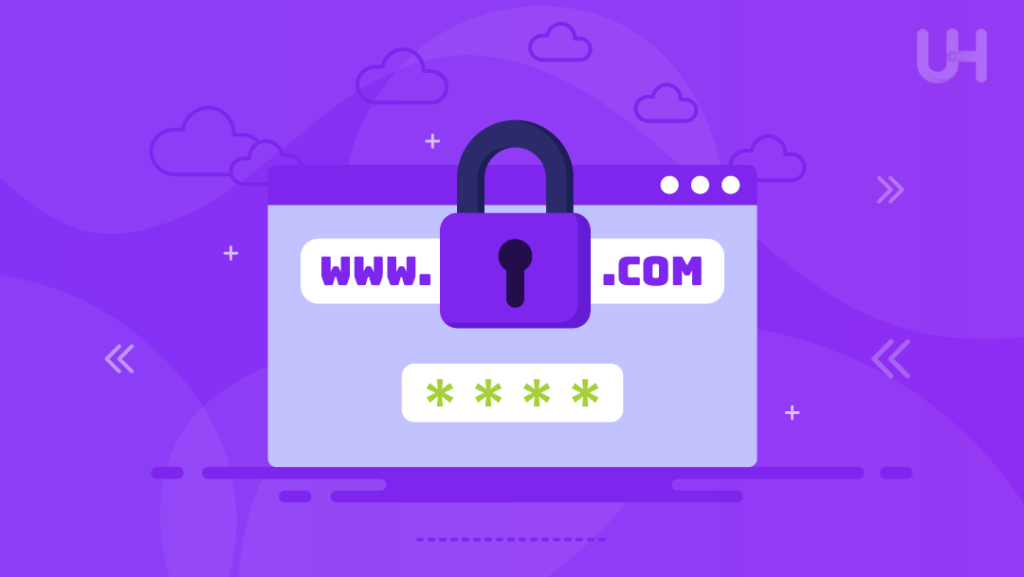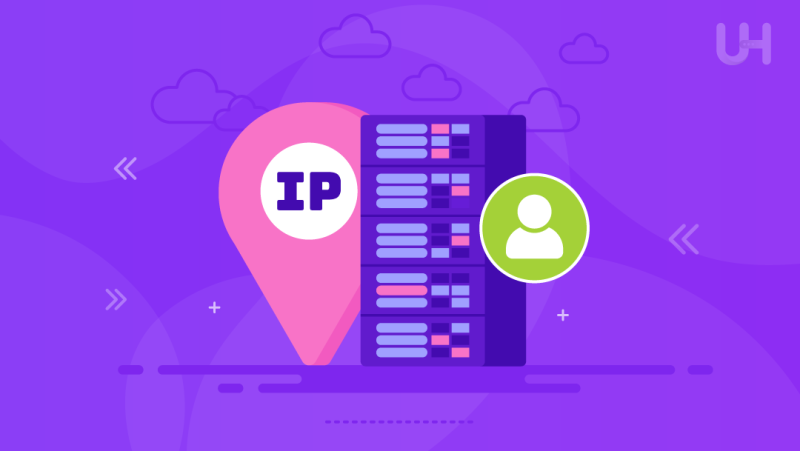Every device has a unique ID called an IP address. It’s like a digital address that helps data travel from one place to another. Just like your home has an address, devices connected to the internet need IP addresses to communicate with each other. These addresses are made up of numbers, like phone numbers for computers. Now, there are two main types of IP addresses: shared and dedicated.
Shared IPs are like apartments where many websites live together and share the same address. But dedicated IPs are more like individual houses, where each website has its own unique address. A dedicated IP address is reserved just for one website or server. Unlike shared IPs, where lots of websites use the same address, a dedicated IP gives a website its very own spot online. This can mean better security and more control over what happens on that website.
What is a Dedicated IP Address?
A dedicated IP address is like having a personal phone line in the vast network of the internet. Just as your phone number uniquely identifies you among many others, a dedicated IP address uniquely identifies your website or server in the digital world.
When you have a dedicated address, it means that your website has its very own exclusive address on the internet. Unlike shared IP addresses, where multiple websites use the same address, a dedicated IP is reserved solely for your use. This exclusivity offers some advantages, such as better control over your online presence and improved security.
Technical Aspects (e.g., How it Works)
Technically, a dedicated IP address is assigned to your website or server by your hosting provider. When someone types in your website’s domain name (e.g., www.yourwebsite.com), their browser uses the dedicated IP address to locate and connect to your website’s server.
Having a dedicated IP address means that your website’s traffic isn’t mix with traffic from other websites sharing the same IP. This can be particularly advantageous for certain online activities, like running an e-commerce store with e-commerce hosting that requires secure transactions or implementing advanced server configurations.
From a technical standpoint, having a dedicated address allows for more precise control over your website’s settings and configurations. It also enables you to set up additional services, such as SSL certificates for encrypted connections, with greater ease.
Overall, while dedicated IP addresses may require a bit more technical setup and potentially incur additional costs, they offer a level of control and reliability that can be beneficial for certain online ventures.
How to Obtain a Dedicated IP Address?

Through Your Web Hosting Provider
The most common way to obtain a dedicated IP address is through your web hosting provider. Many hosting companies offer dedicated IP addresses as an add-on service for an additional fee. When you sign up for hosting or upgrade your existing plan, you can usually select the option to have a dedicated IP address assigned to your website or server. If you’re exploring ways to enhance your internet security alongside a dedicated IP address, you might want to try CyberGhost VPN for free as it offers enhanced privacy without requiring credit card details upfront.
Your hosting provider will typically handle the technical aspects of assigning and configuring the dedicated IP address for your account. They may also provide guidance on how to update your DNS settings or configure server-specific features to ensure smooth integration with your website or online platform.
Keep in mind that the availability and cost of dedicated IP addresses may vary depending on your hosting provider and the type of hosting plan you choose. Be sure to inquire about the specifics of obtaining a dedicated IP address and any associated fees before making a decision.
Explore Dedicated IP Hosting Today!
Ready to take your online presence to the next level? Take the next step in optimizing your website’s security and overall performance.Discover the benefits of dedicated IP hosting with Ultahost.
Considerations Before Making the Switch
Before opting for a dedicated IP address, there are several important considerations to keep in mind:
Cost: Determine whether the benefits of having a dedicated address justify the additional cost. Compare pricing plans from different hosting providers and weigh the cost against the potential advantages, such as improved security and email deliverability.
Technical Compatibility: Ensure that your website or online platform is compatible with a dedicated IP address. Some applications or scripts may require specific server configurations or may not function properly with a dedicated IP. Consult with your web developer or hosting provider to address any compatibility concerns.
Impact on SEO and Email Deliverability: Consider how switching to a dedicated address may affect your search engine rankings and email marketing efforts. While dedicated IPs can offer benefits in terms of security and reputation management, they may also require additional optimization to maintain or improve SEO performance and email deliverability rates.
Server Management: Evaluate whether you have the technical expertise to manage it effectively. Dedicated IPs may require more hands-on maintenance and configuration, especially if you’re responsible for server administration tasks.
The Pros and Cons of a Dedicated IP Address
Advantages
- With a dedicated address, you’re less likely to be affected by the actions of other websites. Since you’re not sharing your IP with anyone else, you have better control over your website’s security. This can be especially crucial if you handle sensitive information or conduct online transactions.
- A dedicated address can improve the deliverability of your emails. Shared IPs, especially those used by multiple websites, may be associated with spammy behaviour, affecting the reputation of all sites using that IP. With a dedicated IP, you’re solely responsible for your email reputation, which can lead to better inbox placement rates.
- Having a dedicated IP address can make it easier for you to access your website, especially during server maintenance or troubleshooting. You won’t need to worry about other websites sharing the same IP, causing disruptions to your access.
Disadvantages
- One of the primary drawbacks of a dedicated address is the additional cost. Unlike shared IPs, which are often included in standard hosting packages, dedicated IPs may require an extra fee from your hosting provider. This added expense can be a deterrent, especially for smaller websites or those on a tight budget.
- While having a dedicated IP can improve email deliverability, it also means that your email reputation is solely dependent on your actions. If you engage in spammy behaviour or send out unsolicited emails, your dedicated IP could be flagged, leading to deliverability issues.
- Managing a dedicated address can be more technically complex than using a shared IP. You may need to configure settings and security measures specific to your IP, which requires a certain level of technical expertise. This complexity can be challenging for beginners or those unfamiliar with server administration.
Do You Need a Dedicated IP Address?
Factors to Consider
- Nature of Your Website or Online Presence: Consider the type of website or online platform you operate. If you handle sensitive information, conduct financial transactions, or require enhanced security measures, a dedicated IP address may be beneficial to maintain better control over your online presence.
- Traffic Volume: Evaluate the amount of traffic your website receives. High-traffic websites, particularly those with dynamic content or e-commerce functionality, may benefit from it to ensure consistent performance and reliability, especially during peak periods.
- Email Marketing Needs: Assess your email marketing strategies and goals. If you regularly send out newsletters, promotional emails, or transactional messages, having a dedicated IP address can improve your email deliverability and reputation, leading to better inbox placement rates and engagement with your audience.
- SEO Considerations: Take into account the impact of IP addresses on search engine optimization (SEO). While Google has stated that IP addresses do not directly affect search rankings, they can indirectly influence factors such as website loading speed and server reliability, which can impact user experience and SEO performance.
Cases Where a Dedicated IP Address May Be Necessary
Enhanced Security Requirements: If your website deals with sensitive data, such as financial information or personal details, a dedicated IP address can provide an additional layer of security by minimizing the risk of cyber threats associated with shared hosting environments.
Email Marketing Reputation Management: If email marketing is a significant part of your business strategy, a dedicated IP address can help maintain a positive sender reputation, leading to improved email deliverability and engagement with your audience.
Custom Server Configurations: If you require specific server configurations, such as implementing SSL certificates for encrypted connections or setting up custom DNS records, a dedicated IP address offers more flexibility and control over these configurations.
Cases Where a Dedicated IP Address May Not Be Necessary
Small or Personal Websites: If you run a small blog, personal website, or portfolio site with minimal traffic and no sensitive data handling or email marketing activities, a dedicated IP address may not be necessary. Shared hosting environments can adequately meet the needs of such websites at a lower cost.
Limited Budget Constraints: For individuals or businesses operating on a tight budget, the additional cost associated with a dedicated IP address may not be justified, especially if the benefits, such as enhanced security or email deliverability, are not critical to their online objectives.
Reliable Hosting Provider: If you’re using a reputable hosting provider that effectively manages shared IP resources and maintains good email deliverability rates, you may not need a dedicated address. In such cases, shared hosting can provide sufficient performance and reliability for your website or online presence.
Conclusion
While dedicated IPs offer advantages such as enhanced security, better email deliverability, and more control over your online presence, they also come with additional costs and technical considerations. Ultimately, a dedicated address can provide valuable benefits for certain websites and online businesses. It’s essential to assess your individual needs and make an informed decision based on what will best support your goals.
Get top-notch security of DDoS-protected VPS with 24/7 support from the Ultahost team of experts. Our powered-on SSD NVMe disk infrastructure focuses on auto-scaling, performance, and security. Let us show you the difference!
FAQ
Can I use a dedicated IP address for email marketing?
Yes, having a dedicated IP address can be advantageous for email marketing purposes. It allows you to maintain a separate sender reputation, which can improve email deliverability rates and ensure that your messages reach recipients’ inboxes.
Why is a dedicated IP address important?
A dedicated IP address is important because it enhances security, improves email deliverability, ensures easier access to your website, and allows for custom server configurations.
Do I need a dedicated IP address for my website?
The need for a dedicated IP address depends on various factors, including the nature of your website, traffic volume, email marketing needs, and SEO considerations. Websites handling sensitive information or requiring enhanced security may benefit from a dedicated IP, while smaller or personal websites may not necessarily need one.
How do I obtain a dedicated IP address for my website?
You can obtain a dedicated IP address through your web hosting provider. Many hosting companies offer dedicated IPs as an add-on service for an additional fee. When signing up for hosting or upgrading your existing plan, you can typically select the option to have a dedicated IP assigned to your account.








